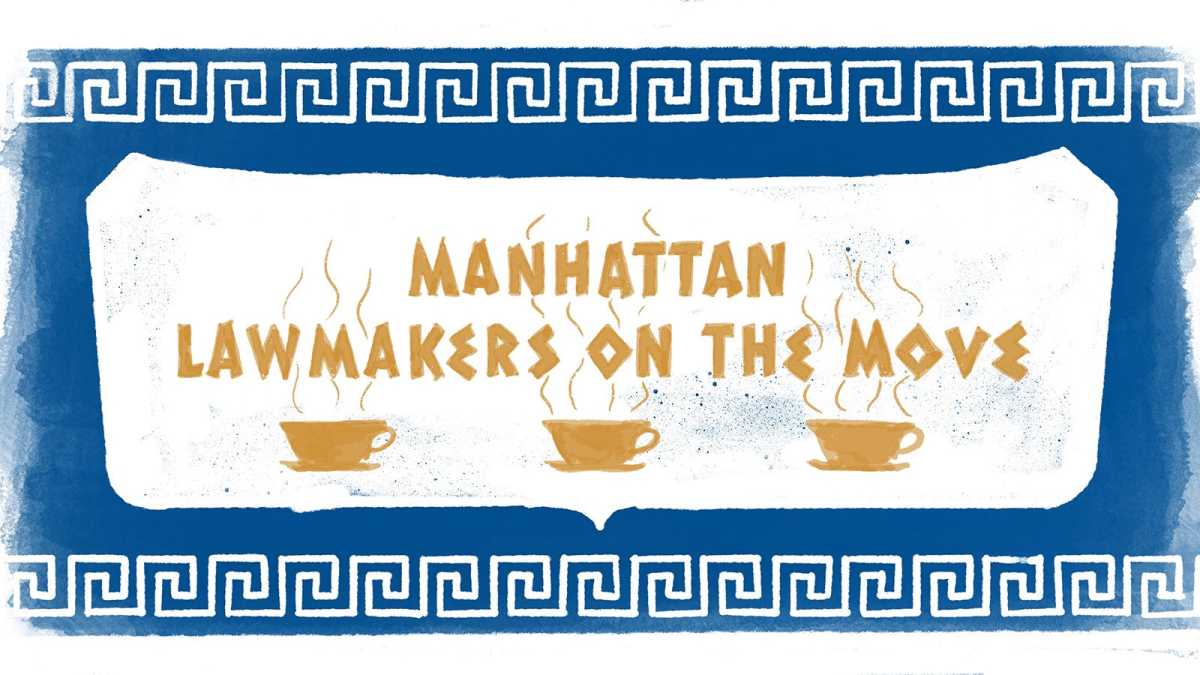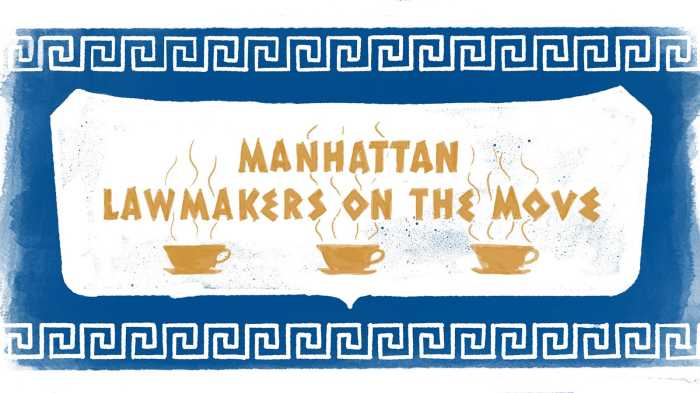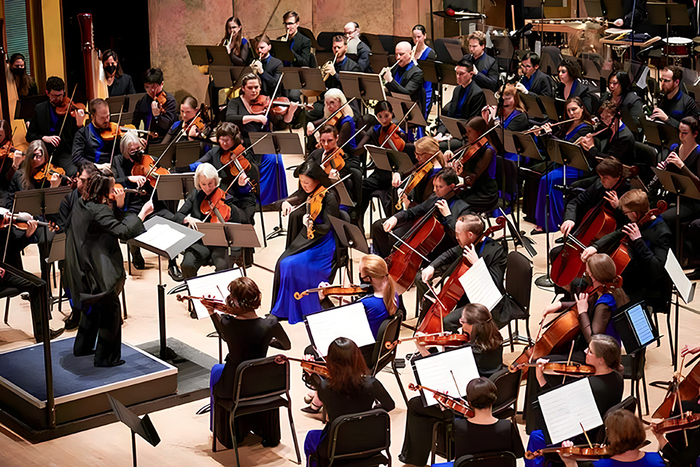Brewer Calls For Halt To 200 Amsterdam Avenue Tower Construction
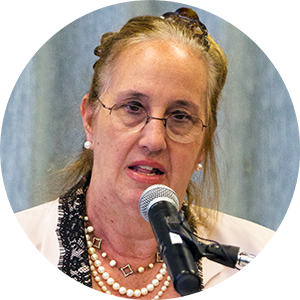
Manhattan Borough President Gale Brewer this week joined advocates and elected officials to push to stop construction on the residential tower by SJP Properties and Mitsui Fudosan America at 200 Amsterdam Avenue.
Last month, the New York State Supreme Court ordered the Board of Standards and Appeals (BSA) to once again review the Department of Buildings (DOB) approval of the building to ensure that it is “in accordance with the plain language” of the zoning resolution.
The BSA will revisit the issue and determining whether or not the tower on 200 Amsterdam Avenue uses “gerrymandered” zoning lots that may not be legal.
The rally was announced after Brewer’s office learned that construction was still continuing on the tower after the Supreme Court ordered a review of the approval.
Brewer said that 200 Amsterdam Avenue is a prime example of developers exploiting New York City zoning laws to increase their profits. The court ruling is on the side of the community, and there is no reason construction should continue on this tower while the legality of it is still being questioned, she said.
Yuh-Line Niou Makes Progress In Adult Literacy Funding

Assemblymembers Yuh-Line Niou (D- Chinatown, the Financial District, Battery Park City, the Lower East Side) and Ron Kim (D-Queens) announced this week they were proud to be the primary representatives of New York City in restoring and securing adult literacy funding for the 2018-2019 State Budget.
Though the final funding amount, $7.793 million, represented an increase from previous years, it still fell short of the estimated $15.3 million that adult literacy advocates and community groups stated was needed to cover recent a gap caused by changes on the federal level.
Even with this increase, an $8 million gap in funding for adult learners in New York still exists following recent changes to the federal Workforce Innovation and Opportunities Act which took effect last year. Kim and Niou pledged to continue fighting to fill this void in funding, which ended access to educational programs for approximately 17,000 adult learners.
“In New York State, nearly 3.5 million adults do not have a high school diploma, English proficiency, or both. English as a Second Language (ESOL) seats have declined in the past while the population of Limited English Proficiency individuals increased throughout New York State. Many of these New Yorkers are qualified for skilled jobs in engineering or healthcare, but face a language barrier to entry,” said Yuh-Line Niou.
“Investment in ALE programs do not only address educational gaps by equipping New Yorkers with the English proficiency and basic education requirements. They provide the opportunity to add to our workforce and our economy by allowing qualified New Yorkers to attain better employment, support their families, and contribute further to our communities. With changes to federal policies, adult literacy classes became much more difficult to access. It is crucial that we continue consistent, stable investment in state-level programs to ensure these programs remain accessible, culturally-sensitive, and reach the diverse educational goals of their students,” she added.
Powers, Kalos Support Ranked Choice Voting
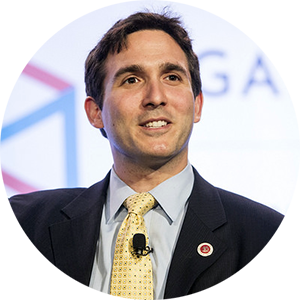
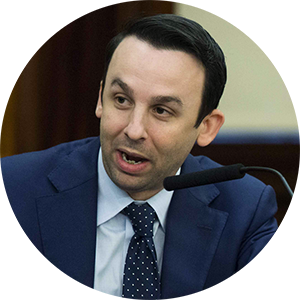
City Council Members Ben Kallos (D-East Harlem, Midtown, Murray Hill, Roosevelt Island, UES) and Keith Powers (D-UES, Carnegie Hill, Yorkville, Central Park South, Midtown East, Times Square, Koreatown, Stuyvesant Town, Peter Cooper Village, Waterside Plaza, Tudor City, Turtle Bay, Murray Hill, Sutton Place) this week joined with other other lawmakers and advocates to urge the NYC Charter Revision Commission to recommend Ranked Choice Voting (RCV).
RCV is a consensus driven system that would allow voters to rank candidates in order of preference, instead of a winner take all model. RCV voting would also allow more community based candidates to compete, particularly candidates of color, according to advocates.
In the last three election cycles in New York City, 63 percent of multi-candidate primaries were won with less than 50% of the vote, 30% were won with less than 40%, and nearly 10% were won with less than 30%. In 2021, the incumbents will be term-limited in approximately 70% of the City Council, all five borough presidencies, as well as the offices of the controller and the mayor. That means over 200 candidates will be competing over open seats.
“Ranked Choice Voting provides an opportunity to increase democracy and eliminate expensive, low turnout elections. This is an opportunity to streamline the democratic process,” said Powers.
“New York City should adopt Ranked Choice Voting for all citywide elections as soon as possible. This Charter Commission would be improving our democracy, saving our City millions of dollars and making elections better if they recommend Ranked Choice Voting and it is adopted,” said Kallos.
“Ranked Choice Voting has been used successfully around the country, since at least the 1940s. In 2016 Maine made it state law because it helps elect candidates who are supported by a majority of voters while at the same time increasing voter turnout and saving municipalities hundreds of thousands of dollars,” he added.
Hoylman, Johnson Push To Keep ICE Out Of Courts
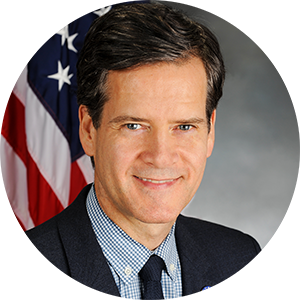

State Sen. Brad Hoylman (D-Clinton/Hell’s Kitchen, Chelsea, Greenwich Village, UWS, Midtown/East Midtown, Columbus Circle, Times Square, Stuyvesant Town-Peter Cooper Village, the East Village, LES) and City Council Speaker Corey Johnson (D-Hell’s Kitchen, Chelsea, the West Village, parts of Flatiron, SoHo, UWS) yesterday joined a coalition of more than 100 organizations across the state in speaking out against U.S. Immigration and Customs Enforcement (ICE) agents making courthouse arrests.
The lawmakers were responding to a state issued report, Safeguarding the Integrity of Our Courts; The Impact of ICE Courthouse Operations in New York State, which measures the harmful impact of ICE’s increased courthouse arrests on vulnerable New Yorkers’ ability to access justice, including survivors of domestic and sexual violence, victims of human trafficking, single mothers, and immigrant youth.
The report, which surveyed judges, district attorneys, public defenders, elected officials, and legal advocates from across the state, documents irrefutable evidence of ICE’s devastating impact on New York State courts, including a 90% drop in calls made to immigrant hotlines reporting crimes in certain locations; a 100% decline in U Visa certification requests from immigrant victims of crime in Manhattan Family Court and significant drops in other boroughs.
“This new report from the ICE Out of Courts Coalition provides disturbing new evidence that ICE’s vicious pursuit of undocumented New Yorkers is intimidating witnesses and driving survivors of abuse into the shadows,” said Hoylman. “This is sickening stuff. New York must pass my Protect Our Courts Act to ensure that all residents of our state — regardless of their immigration status — can participate in our justice system and hold perpetrators accountable. It’s time to send the message: our courthouses are sanctuaries, and ICE is not welcome.”
“This report documents in painstaking detail the calculated effect of federal interference in our state court system, disrupting our ability as a City to administer justice,” said Johnson. “The result is that we are all less safe. State action is long overdue. I call on Chief Judge DiFiore to promulgate rules that restrict court officers’ ability to cooperate with federal immigration enforcement absent a signed judicial warrant, and I call on the New York State Legislature to pass the Protect our Courts Act (A.2176 / S.425), to ensure the sanctity of our justice system is protected.”
“The federal government should not enforce civil immigration law in New York State courts. It gravely impedes the imposition of civil and criminal justice and it makes us all less safe,” the Speaker added.


